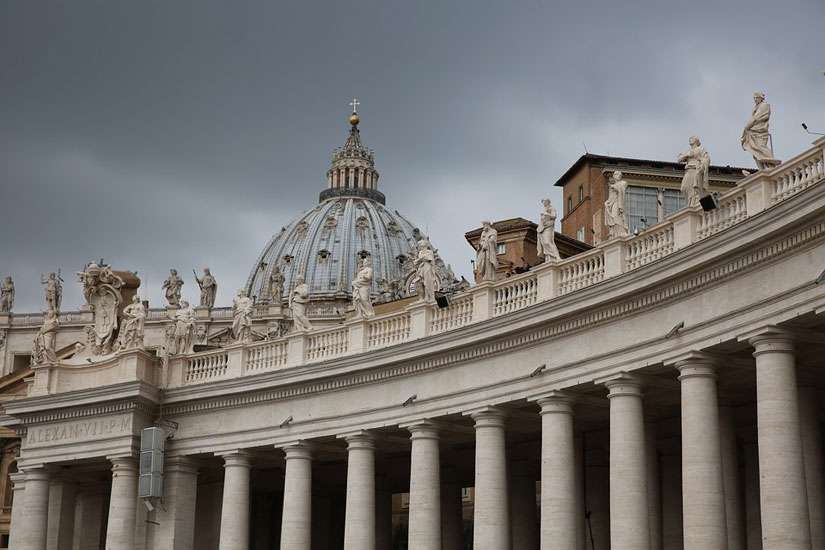But the Vatican courtroom, located several feet from St. Peter's Basilica, is not at all like a typical courtroom, much less like ones depicted on TV shows such as Law and Order or classic dramas like A Few Good Men.
Unlike Italy, where it can take years before a final verdict is reached in a trial, Vatican City State is governed by its own laws and procedures, which on a few occasions have led to a relatively quick verdict.
Such was the case with the first "VatiLeaks" trial. The trial of Paolo Gabriele, the personal assistant to Pope Benedict XVI charged with leaking private documents, began Oct. 2, 2012, and concluded with a guilty verdict after just four days.
However, due to the complexities of the "VatLeaks II" case, any hopes for a quick trial were dashed early on.
"I wanted the trial to conclude before Dec. 8 for the Year of Mercy, but I don't think this can be done since I want all the defendants' lawyers to have time to prepare their defenses," Pope Francis said on his return flight from Africa in November.
Allowing for more defense preparation isn't the only factor contributing to a more lengthy trial this time around. First, there are five defendants. The prosecutors and defense attorneys make their cases not in front of a jury, but before three judges led by Giuseppe Della Torre, head of the tribunal of the Vatican City State.
All statements from the tribunal judges, lawyers and witnesses are transcribed and read back to the court after each session by the court reporter, a necessary function carried out in a somewhat archaic manner.
A typical courtroom stenographer in the United States must pass dictation speed tests of up to 225 words a minute, something generally lacking in the Vatican courtroom.
Instead, a young, two-finger typist seated next to the defendants furiously types away on a laptop, perspiration dripping from his brow as another courtroom official dressed in a black robe looks over his shoulder to ensure the accuracy of his transcription, often pointing to the screen and instructing him to change mistakes.
The clerk will at times raise his hand, motioning whoever is speaking — even the lead judge — to hold off while his colleague catches up transcribing the last statement.
At the end of the session, which can sometimes last several hours, the clerk reads the entire transcription over. Occasionally, the clerk will be interrupted by a lawyer, the judge or a witness who will clarify a statement.
During the May 7 session, Della Torre took to repeating each question and the heart of the answer spoken in court to ensure that the recorded answers were objective and pertinent to the question. Della Torre also made sure people in the courtroom understood a Vatican trial would not include the kind of dramatic outbursts often seen on American TV. For example, Rita Claudia Baffioni — an attorney for Nicola Maio, who is accused of aiding in leaking the documents — objected to several questions she said were misleading the witness.
Francesca Chaouqui, another defendant and a member of the former Pontifical Commission for Reference on the Organization of the Economic-Administrative Structure of the Holy See, also interrupted the proceedings shortly after Baffioni, complaining that the line of questioning made it seem she had something to hide.
"This isn't an American trial," Della Torre quipped, adding that each of the defendants' lawyers must wait their turn to question the witness after the prosecution.
Chaouqui drew the attention of the judge when she interrupted once again, telling the court she was almost nine months pregnant and that the length of the trial was too discomforting. Della Torre quickly reminded her that as long as her lawyer is present, she was never obliged to be present at the proceedings due to her physical state.
"No, I want to stay," she replied.
Even though the trial — which was to have its 13th session May 14 — has all the ingredients for drama and intrigue, Della Torre often finds himself playing the role of both judge and director, reminding people that there will be order, even in a place as unique as a Vatican courtroom.


